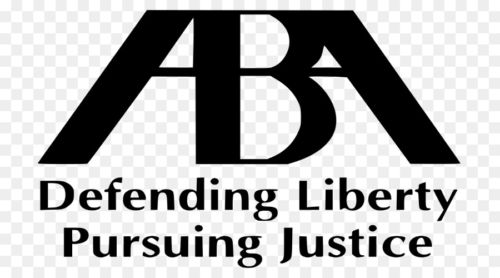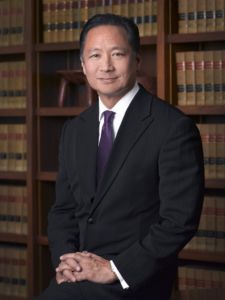Who Polices the Prosecutors?
We in America have lost faith. Not only is there a decline of religious faith in the United States, there is also a lack of confidence in the institutions that made this country what it became – a worldwide superpower, respected by all.
I’m most worried about the lack of faith in our justice system.
Today, people of all races, creeds and colors believe the status quo, which has created a current prison population of 2.3. million plus another 4.5 million on probation or parole, simply isn’t fair. Rich people get to pay their way out of problems while poorer people (mostly those with darker skin) get swallowed up by the system, imprisoned and tainted by their conviction record for life.
This column will likely make me no friends in the legal community, but things need to be said and facts need to be revealed. The problems within the justice system can be traced to the lawyers who run it – the judges, defense attorneys and government prosecutors – and the watchdog organizations established to police those lawyers, like the American Bar Association and its statewide chapters.

But Are They Also Defending Unethical Prosecutors?
When taxpayer funded prosecutors commit malpractice they are rarely held accountable. To err is human, of course, but when a prosecutor deliberately withholds information that could go to exonerate a defendant, tampers with a witness or routinely puts winning ahead of the search for truth then steps should be taken to remove that person from office. That rarely happens.
Across the nation there are provable cases of prosecutorial misconduct yet most often neither the ABA or state bar chapters fulfill their mandate to protect the citizenry by issuing a public censure, sanction or some other type of punishment for an offending attorney.
According to a recent commentary at TheAppeal.org, an organization that tracks trends within our justice system, prosecutors are almost untouchable under the current legal structure. The authors, California public defenders Jeff Adachi and Peter Calloway say prosecutors are “essentially absolutely immune from (citizens’) civil suits” in cases of misconduct that lead to unwarranted convictions.

Attorney Adachi Fought Against Prosecutorial Misconduct
It is fairly uncomplicated for someone to sue a police officer for misconduct but federal law still provides an enormous umbrella of protection for those who do their lawyering from a district attorney’s office.
There have been several studies into the problem of dishonest prosecutors. The Yale Law Journal reported a few years ago that prosecutors withholding evidence favorable to the accused, “accounts for more miscarriages of justice that any other type of malpractice.” Yet their offenses are “rarely sanctioned by courts and almost never by disciplinary bodies.”
Talk about protecting your own at the expense of justice.
In Massachusetts, the New England Center for Investigative Reporting scoured more than 1,000 rulings going back to 1985 in which a defendant claimed harmful prosecutorial misconduct. In 120 cases state appeals courts reversed the conviction due to misbehavior by the prosecutor. That is a small percentage of reversals, but there is agreement that this kind of malpractice is way underreported. Lawyers for the wrongfully convicted frequently move on or don’t want to complain about a local prosecutor they’ll have to deal with again. Just think of all the time served by those defendants who either didn’t get a fair trial or were just plain innocent of the charges.
The NECIR also found that when courts tossed out these unconstitutional convictions or outright exonerated the prisoner the prosecutor was rarely named or disciplined. No prosecutor has been disbarred in Massachusetts since records began 50 years ago.
So, if a wrongfully convicted person can’t sue an unethical prosecutor and neither the state or national ABA takes steps to remove the offender then what’s to keep that prosecutor from continuing their unscrupulous behavior? The answer is: nothing. Bad actors in Massachusetts, California, New York and other states have been allowed to continue in their prosecutorial positions. Some have become judges or district attorneys.

….With Liberty and Justice For All, Right?
The situation became so egregious in San Francisco in 2017 that public defender Adachi filed a formal complaint against one particular local prosecutor who, he said, was a habitual repeat offender. Adachi, who died suddenly two months ago wrote, “When people are accused of crime … they cease to be seen as people by our legal system and become merely ‘criminals.’”
San Francisco Assistant D.A. Benjamin Mains was accused of withholding important evidence and crucial witness statements in “seven serious cases” going back years. In December 2017 Mains was fired from the D.A.’s office. I could find no California State Bar Association action against Mains. He is currently listed as having an active law license and is now reported to be in private practice.
As usual, allowing a company, organization or the government to police itself doesn’t work. If we truly want to restore the public’s faith in our judicial system everyone – I repeat, everyone – needs to be held accountable. Time for the Bar Associations and District Attorneys everywhere to demand better ethics from their members.

###
Michael Weber writes:
There also is zero accountability for defense attorneys. I’ve seen them clearly witness tamper, which in my state is the same level of the offense for which the defendant is on trial for, with zero consequences from the district attorney’s office or the court (in fairness, the court usually isn’t made aware).
This is usually because of political connections. I’ve seen this happen far more often than prosecutorial misconduct.
DD replies:
Yes, but taxpayers don’t usually foot the bill for defense attorneys. And, I have written about unethical defense attorneys here in the past. This time it was the prosecutions turn.
Terry Wilmont writes:
Ms. Dimond …
I’m not sure if I agree with the notion that the USA became “a worldwide superpower, respected by all.”* No one or thing is ever quite totally perfect, including the USA. We do, as a matter of fact, have a terribly tainted history of aggression, domestically and internationally, all the way back to the original Puritans who eventually entered right into the fray to kill native people, even after it was the native people who saved their rotten tails the first winter.
Crimes against humanity on any number of different levels dot the landscape of American history* … religious persecutions, genocide, and on and on along the perennial rail-line of deliberate savageries perpetuated against our kind (humans) over the centuries and up to the present have been the name of the game. War, after all, is an American capitalist enterprise of substantial significance economically although the actual figures are difficult to arrive at … however, if one counts the Cold War, the United States has been at war for virtually every year since 1941. Some have been necessary reactions to aggression against the homeland … but hardly all. The other somewhat startling fact is that “Aside from independent efforts by the Congressional Research Service (CRS), neither the Executive Branch nor the Congress have ever issued an official report on the costs of American’s ongoing wars, examined the trends in these costs, or insisted on meaningful reporting on their effectiveness.”
Through Fiscal Year 2019, the United States federal government has spent or obligated $5.9 trillion dollars on the wars in Afghanistan, Pakistan, and Iraq. This figure includes direct Congressional war appropriations; war-related increases to the Pentagon base budget; veterans care and disability; increases in the homeland security budget; interest payments on direct war borrowing; foreign assistance spending; and estimated future obligations for veterans’ care.
The current wars have been paid for almost entirely by borrowing. This borrowing has raised the US budget deficit, increased the national debt, and had other macroeconomic effects, such as raising consumer interest rates. Unless the US immediately repays the money borrowed for war, there will also be future interest payments. We estimate that interest payments could total over $8 trillion by the 2050s.
I agree with your position on the major premise of your article, however, that when “taxpayer-funded prosecutors commit malpractice they are rarely held accountable” and that is a major issue that needs to be addressed. It’s a moral humiliation that this practice is allowed–ALLOWED–to suppurate the damage that is accrued year in and year out, against hundreds and thousands of Americans. … heinous atrocities conducted against other human beings, within the context of a legal system founded upon the notion of innocent until proven guilty … a philosophy of criminal justice based on the assumption that an individual has a right to protection from the arbitrary power of the state.
I would ask the question, along with you: Why is this practice knowingly allowed to continue … and how does this practice lend itself to any level of high regard or respect by ethical practitioners when it is a known fact?
Something needs to be done right now … if not sooner.
Reader Shannon Marie writes:
Diane Dimond, I read your article entitled “Our U.S. Justice System Isn’t Fair” on my local newspaper website. You state that “[t]he problems within the justice system can be traced to the lawyers who run it — the judges, defense attorneys and government prosecutors. . .” Yet of all the corruption you discuss, the only problem that you point out in your article pertaining to defense attorneys is that “[l]awyers for the wrongfully convicted frequently move on or don’t want to complain about a local prosecutor they’ll have to deal with again. Just think of all the time served by those defendants who either didn’t get a fair trial or were just plain innocent of the charges.” As a public defender, I deal everyday with overzealous, corrupt, and dishonest police officers and prosecutors, to the detriment of my clients. I, along with public defenders and defense attorneys around the United States, fight tooth and nail for our clients interests, against the momentous power of the state. I and my colleagues regularly call out police and prosecutor misconduct. We are not afraid to call it out, that is not the problem. The problem is that little is done about it, especially when we stand with the poor, the downtrodden, the homeless, the disease stricken. We stand with our clients who are called liars with everything they say. Jurors believe police. Police are permitted to lie constantly to suspects to get the information they want, whether that information is accurate. Yet, when a police officer takes the stand, suddenly the general public believes them. This is a phenomenon I cannot understand, especially after catching officer after officer in a lie. A colleague of mine recently had a case tossed after the ADA involved was caught engaging in misconduct. We also regularly appeal cases. We’ve held the hands of a client during a guilty verdict for a client we know is innocent. We’ve fought to have evidence suppressed when police commit violations of their rights. We fight. We fight everyday, and we do it for next to nothing. And we fight corrupt police, overzealous prosecutors, and the probation department. And then we fight for a bed for our client in a failed mental health system and a failed drug rehabilitation system. We fight. And for accuracy, when people maintain their innocence, many times they sit in jail longer waiting for trial. There are so many more considerations and nuances that you are not looking into. Please, if you are going to call out defense attorneys, at least be accurate about what we do. If you have any questions about what I do, I’m more than happy to talk.
DD replies:
Shannon Marie, i write an 800 word column every week. This last one just happened to be about Proseuctors who engage in misconduct and are most often not punished. You have, I fear, missed the point of the column by focusing on the one line about defense attorneys. I have, in the past, written copiously about defense attorneys, their travails, the Innocence Project, the lack of beds for those in need of mental helath. This journalist is not ignoring your plight – I just didn’t focus on it in this column.